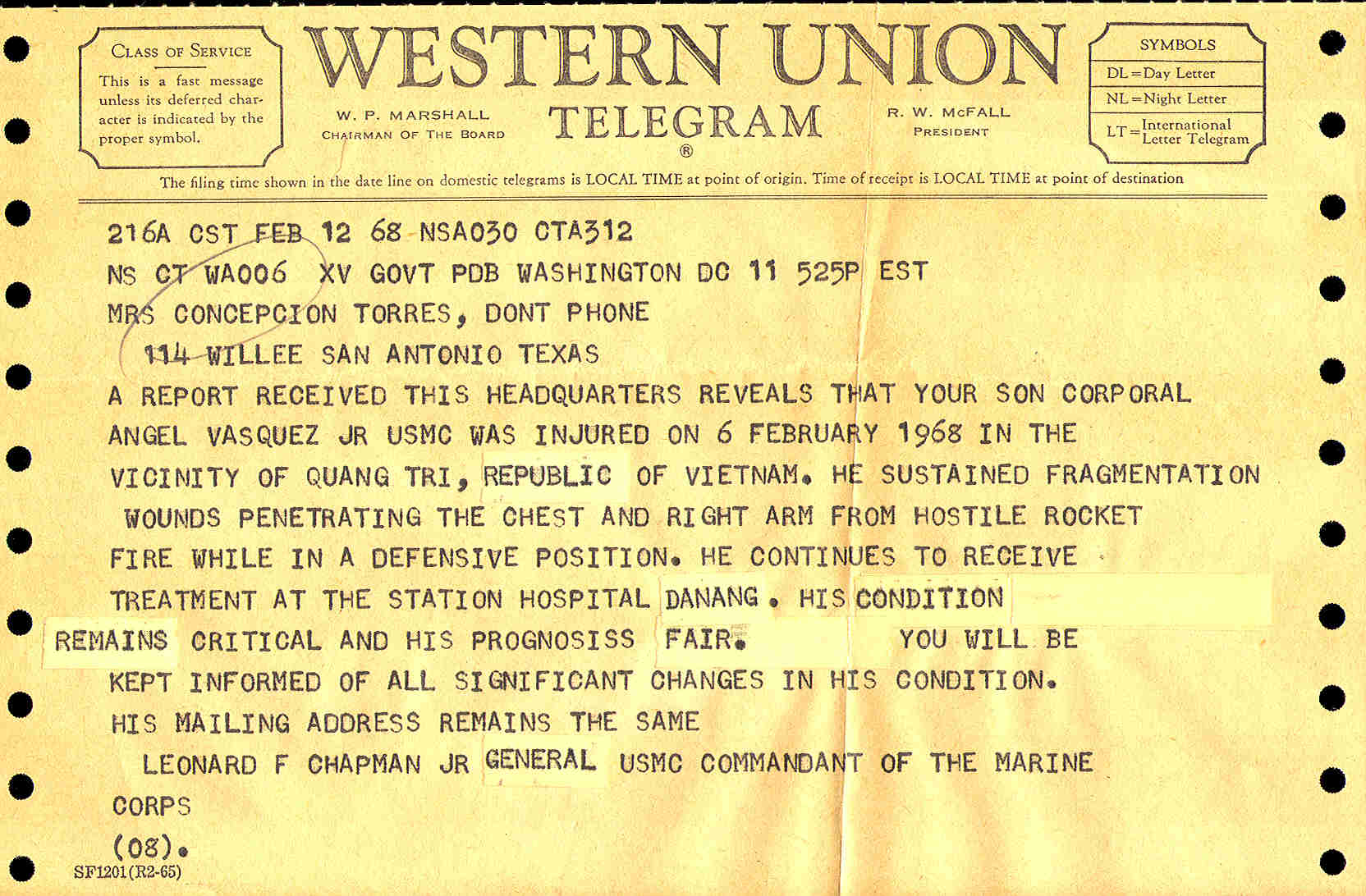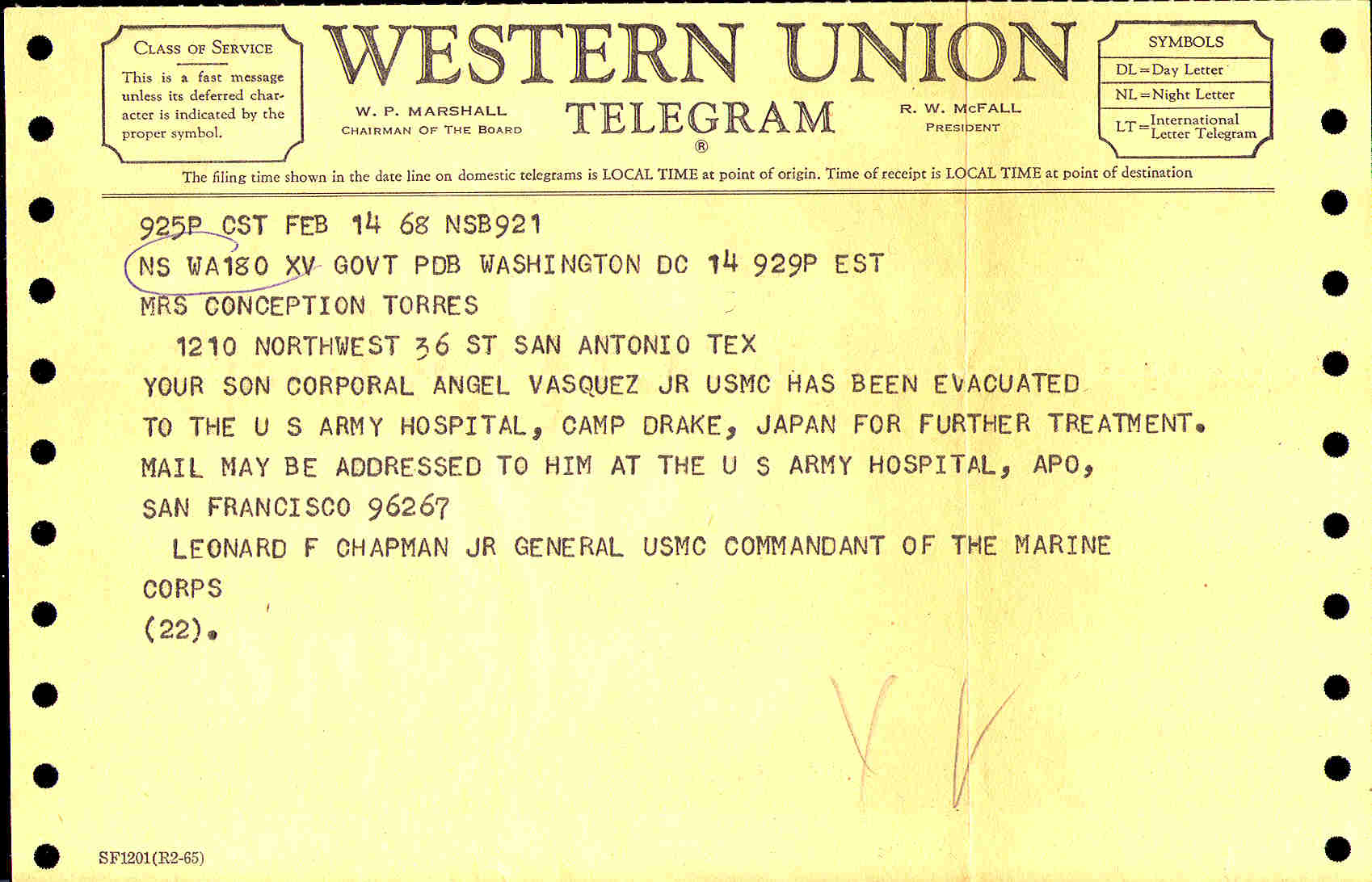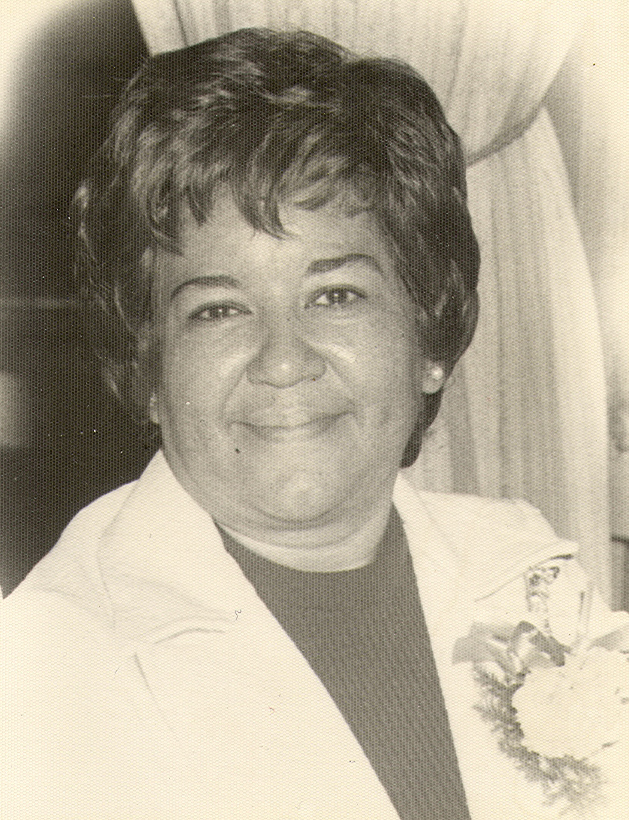INTRODUCTION
Concepcion "Connie" Pachecano was born in 1924 in Dallas, Texas. Born of a Mexican national,
Natividad Pachecano and a Mexican American, Rafaela Herrera, she was not like many of her peers.
Her father, a construction worker, somehow afforded many luxuries including a brand new Model T
of 1921. Although her family had wealth, they still could not evade the sentiment of the times of
discrimination. Before she could graduate at Sydney Lanier High School in San Antonio, Texas, the Pachecano family found itself at a cross roads- World War II. Two of her brothers went to the war, leaving the family without the extra
income needed. So in 1944 she dropped out of the eleventh grade and went to work in Kelly Air
Force Base as an aircraft mechanic specializing in hydraulic brakes. It was at Kelly that Concepcion found her first love, Angel C. Vasquez. In 1945 they married but all was not well with the marriage. Concepcion suffered an abusive husband and before the birth of her third child they separated. She returned to her parents and divorced him in 1963.
She then remarried with Charles Torres in 1964. Amazingly, years before her divorce her ex-husband "consented" to allow her to go to college in 1956. She took her GED test at San Antonio College then attended St. Mary's College where she received
received a certificate in Continuing Ed; 20th Century Bookkeeping. From 1956 to the present, she has
worked as a bookkeeper.
TRANSCRIPTION
How did you first hear about the Vietnam War and how did you understand it?
Through the media. I didn't understand. I had no idea that myself would be involved,
implicated…you know. When I first heard about the Vietnam War I had no idea how it was going
to affect me.
Were you confused about the issue?
No not really but I thought to myself we had no business being there… I've never been a
historian or a I don't care too much about politics… I am concerned about my country? Yes! But
I really don't know how I felt about Vietnam I thought we had no business being there Who am I
to judge our country
When did the Vietnam War first hit home to you?
When my son was wounded
So it didn't affect you when he went to war
Well yes but it was his decision. And he volunteered he was not drafted And I thought
that by him volunteering it was his decision. I didn't very much like for him to have
volunteered but that's what he wanted to do so I accepted it. I asked him "why," that he should
finish school. "No. I want to go because I want to serve my country"
How did the kids react to Angels leaving?
They didn't say much because Nancy and Rafael who were the youngest one. They sort of
respected him, obeyed him so they didn't say much you know. The fact that I had gotten married,
I think they thought, like Angel said, I am leaving you in good hands." Meaning Charles.
Was life hard when you saw reports on television?
No. I didn't see anything on TV. If they had shown on television what they show right now
what's going on in Iraq, I don't think I could have survived it. My son being out there, you know,
I don't think I would have done well. You know, to me it really wasn't a war. My son was in
the service and that was it. I had no idea how he was constantly in danger. When he wrote to me
he didn't say much. So I had no idea. And I have some letters here that I know that I got from
him even the last one that says not to worry. He said he was going to send me some boxes but
there was no need for me to open them because in those boxes there were nothing but his clothes
and his personal things just to leave them like that.
So he was already on his way back?
He was about to leave Vietnam because he had come on leave and he returned. The way I
understand, he should either go back and finish his tour in Vietnam or stay here in the states
for a year and then go back to Vietnam to finish his tour. But he decided to go back and finish
his tour in Vietnam altogether so when he came back he wouldn't have to go back. Yes, it was no
more than ten days that his tour was over when he got wounded. So the last letter he wrote to me
was like, "I guess you know we got hit real bad Khe Sanh but don't worry I'm at the perimeter,"
And don't worry that's the safest I could be." And then a few days later I get the telegrams
that tell me that he was wounded.
Did his letters ever mention any bad reports?
No, only that the last letter said that he was coming soon and that he was ok. And his car
better be in good condition. But I really did mean about the car you know. Because the last
time he was here on leave he had bought a new I think it was a 1965 Mustang no 67. And he had
been sending me money every month saying this is for you this is for you. But I kept saving it.
So when he came he said he wanted to buy a car and we went to see a used car. And I said well
let's see how much it costs to buy one new. And he fell in love with the Mustang. He said,
"but I don't have the money to buy that kind of car." "But I have saved all that money you
sent I have saved it. I want you to use it for your new car." And he said, "you did mom!"
He was so surprised I hadn't spent the money. So he was very proud of his car. So that why he
says that all is well but if something were to happen to his car all "*** " is going to break
loose. And that he really didn't know why they were there. Cause they didn't know who they were
fighting against. One thing he did mention one time was there were they didn't know who they were
fighting against. You know it might be a little kid and he was all carrying bombs that would
explode them when they were near a camp, a US camp, or some of the soldiers might explodes and
kill some of our men.
Did he think that the news was of what happened at Ka Sauhn was hitting your ears?
No, as a matter of fact when I received the telegram I said, "where in the world is this
republic?" You know that my son got hurt. And I don't even know where this Republic of Vietnam
is you know. But when that letter tells me that "I guess you already know that we got hit really
bad and I understand too that Korea is getting a little jealous." Or something like that he says
or "stirring up some dirt" or something like that being that Korea that we might be in that war
too. We had already been there in Korea you know but I don't think that up to this day Korea
isn't a friendly nation to us.
When was the first that you heard of your son's injuries?
About two days after it happened but then again there is a day difference in time so it must
have been almost immediately that they let me know . A Marine officer came to my house to notify me
of the injury.
Tell me about when the marine came to you
I wasn't there when he arrived. I approached my driveway I saw a car in the driveway. As I
passed the hall I heard Nancy and Rafael and they were laughing and the reason they were laughing
was for me not to be upset right away. Like Angel had said you there would be a Marine telling
you what had happened to me if anything should happen to me. And when I saw it was a Marine
right away I didn't know what kind of news he was going to give me you know.
How did you find out how he was doing?
They kept sending me telegram letting me know of his condition.

What happened after your last telegram?
And then I get the notice that he is being evacuated to Camp Drake Japan Then a few days
later I get the invitational orders for me to go visit him in Japan

Was that in March?
No that was in Feb, it all happened in February.
So tell me about the invitational orders
That day I was happy because I had received the telegram that he was removed from the
critical list. I just got home from visiting a family member. My neighbor called me and said
that the American Red Cross was looking for me. And I said, "the American Red Cross, what do
they want with me." I had no idea what they wanted. When I hung up there was a knock at the
door and there were two marine officers there coming to tell me that he had given up and the
government wanted me to try to change his mind, telling me that he's not fighting to recover
to them he has given up. They wanted me to go be with him to see if he would change. I can't say
I was happy but I was glad that I could be with him because I was told that he had no desire to
keep on living, you know. He was just giving up. He wasn't fighting. I was glad they were
giving me the opportunity to go visit him. So they asked me, "how soon can you get ready?"
And I said, "I am ready."
Did they tell you that you needed to get your finances together?
No, not at that time. They asked me where were you born and I said Dallas Texas. They
asked me if I had a birth certificate I said no. "Can we use your phone?", "Yes". They called
Austin. They verified my information. They told them to wire information to Treasure Island
After they got all that straightened out, I told them about the American Red Cross
. They
were trying to get a hold of me and they (the Marines) told me they probably wanted to help
you with your...because you have to have your plane fare from here to California in order for us
to keep on helping me to get to Japan. And when they told me that I didn't know where I was
going to get the money because in those days times were hard it was like we were experiencing
the depression not like the one in the 1930's but was sort of a depression you know. So I
accepted that the American Red cross would help me with my fare to California. How I got the
tickets I don't know because the marine officers I don't know if they got the ticket all I
remember was they told me be at the airport at nine o'clock and that was February the 17th and
I flew to San Francisco when I got to San Francisco through the intercom they said there was
someone waiting for me at the door and I thought that perhaps it might be my sister that were
living in California and my brother and to my surprise no when I said I was Connie Torres there
was a lady and I don't know if it was a marine or navy but it was someone from the government
and there was a regular car picked me up they took me to
Treasure Island
and then they took me to get my pictures at three o'clock I had an appointment at the State
building to be opened. We went in there but there was nobody there because it was Sunday and
everybody was off. And they opened that building for me to get my passport. And they gave
me my passport then the lady took me for dinner I think she was from Family Service. If it
hadn't been for them I don't know what I would have done, you know. Get to San Francisco get
a taxi. And what? ...And so those people are volunteers to help somebody in my case. And
by this time it was already dark when she took me to the airport and she took me to the section
that is called protocol something like that. I understand it was something like the service
man say for the "high brass," you know, generals, captains, lieutenants. It was a very nice
area and they sent me to a chair, like a recliner and I fell asleep because I was so tired. And
all night Saturday I had to get ready with my clothes. They told me more or less what to take
like hoods and heavy clothes because it was winter and Japan was very cold. So I was asleep and
the plane was supposed to take off at 12 o'clock from San Francisco at midnight so I was asleep
when I hear, "Mrs. Torres, Mrs. Torres. It's time for you to board the plane." So you know I
got up and I was the first one to get on the plane. And I was always the first one to board
and there was always someone looking after me you know they didn't, "just board the plane and then
be on your own." No no they took very good care of me that is one thing that I can say So I
boarded the plane and we flew from San Francisco to Anchorage and Fairbanks and then from there
we landed in Japan and I lost a day. I left here February 18 and I was there it was the 20th
and I lost the 19th I don't know what happened that day (chuckles). And it was a Tuesday.
And we crossed the equator (meridian) you know where one side is day and the other side is night
that was an experience.
